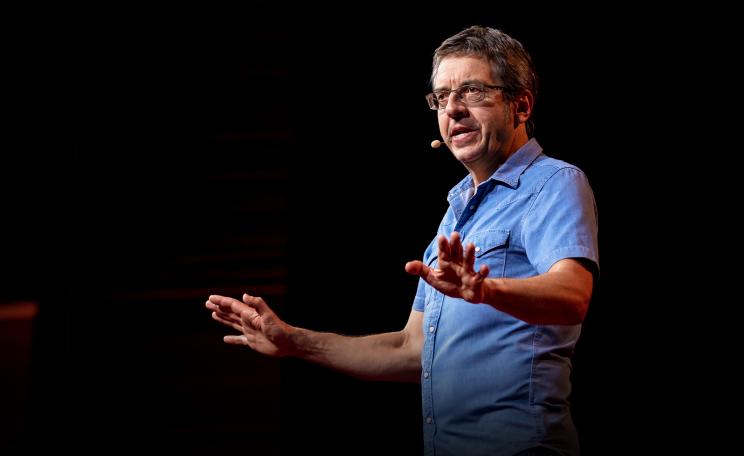Those who deny that trade is a means of redistributing wealth between nations are duty-bound to find another means to this end. For a start, redistribution is not going to happen through aid; even if the rich world was suddenly to start pouring money into the poor nations, this would merely trap them in patronage, dependency and blackmail. And theft and piracy may have served powerful countries well, but the poor are in no position to reciprocate.
Trade has, so far, proved ineffective in solving the problems faced by most nations. However, the answer to the iniquities of the existing trade regime is not no trade, but fair trade, which would permit the transfer of wealth from rich to poor without undermining the rights of workers and citizens or destroying the environment.
One rule for the rich…
The existing global trade regime forbids poor nations from following the path taken by the rich. With the exceptions of Switzerland, Belgium and the Netherlands, all the nations that have become independently wealthy did so with the help of a mechanism economists call ‘infant industry protection’: defending new sectors from foreign competition until they are big enough to compete on equal terms. The textile industry in Britain, for example, on which the Industrial Revolution was built, was nurtured and promoted by means of tariffs (or trade taxes) and the outright prohibition of competing goods. Between 1864 and 1913, the US, which now insists that no country can develop without free trade, was the most heavily protected nation on earth.
Throughout this period, it also had the fastest-growing economy. Only when these countries had established technological and commercial superiority did they suddenly discover the virtues of unimpeded competition.
For nations to develop in direct competition with countries with established industries is like learning to swim in a torrent: you are likely to be swept away and drowned long before you acquire the necessary expertise. Your competitors have experience, intellectual property rights, established marketing networks and economies of scale on their side; your infant industries have none of these advantages. It is all but impossible, in other words, for poor nations to extract money from the rich unless they can protect some key parts of their economies.
Clearly, nations that are currently poor should be permitted to defend certain industries from foreign competition with the help of tariff barriers, other import restrictions and subsidies. They should be able to impose strict conditions upon foreign investors, insisting, for example, that companies can only enter their territory if they are prepared to leave behind more wealth than they extract. They should be allowed, in certain circumstances, to override intellectual property protections, to grant themselves the ‘technology transfer’ now denied by the trade rules to most poor nations.
Rich nations, on the other hand, should be required to pull down their barriers to trade. They should be permitted neither to subsidise their industries nor to impose tariffs on imports from other countries. Nations, in other words, should be forced gradually to lift their protections as they develop. So, the first function of what we might call the Fair Trade Organisation (FTO) would be to lay down the rules governing the protections and privileges permitted at different stages of development.
A fair-trade system should, or so we should hope, slowly push the world towards genuine free trade, which, when nations achieve a roughly similar economic status, is likely to be the most equitable means of governing nations’ relationships with each other. There is, of course, no single formula for development, but this system could provide a potent means by which the world could begin to move towards the economic equality that is an essential prerequisite for political equality. It would not, however, directly address some of the other critical problems that the people of poor nations confront – such as low labour standards, environmental destruction and the inordinate power of the corporations.
Firm but fair trade
Many campaigners in the rich world have suggested that the best way to raise standards is to discriminate, through tariffs or other measures, against imports from countries where workers or the environment are mistreated. This approach has also been advocated by trades unions seeking to protect their members’ jobs from foreigners. Unsurprisingly, it is deeply resented by the very people it is supposed to help: the workers of the poor world.
If our purpose is to regulate international trade, then it surely makes sense to address the behaviour not of nation states but of the economic agents operating between them: the multinational corporations. We know that they move from nation to nation, seeking ever-lower standards; we must force them instead to seek ever-higher ones.
If we oblige corporations to set high standards, by punishing them for the destruction, oppression or dispossession caused by the trade in which they engage, then the market begins to work for the poor. The people of the poor nations can then pursue the case for necessary changes in national legislation themselves; they would be aided by the contrast the new global trade rules establish between the standards the export industry has to set and the standards fixed by the domestic employers. Trade rules would then facilitate, rather than impose, domestic political change.
So a second function of the FTO could be to set the standards to which corporations wishing to trade internationally must conform. Many of these have already been devised by bodies such as the International Labour Organisation (ILO) and the UN. The FTO would, in this respect, function as a licensing body: a company would not be permitted to trade between nations unless it could demonstrate that, at every stage of production, manufacture and distribution, its own operations and those of its suppliers and sub-contractors met the necessary standards.
If, for example, a food-processing company based in Switzerland wished to import cocoa from the Ivory Coast it would need to demonstrate that the plantations it bought from were not employing slaves, using banned pesticides, expanding into protected forests or failing to conform to whatever other standards the FTO set. The firm’s performance would be assessed, at its own expense, by a monitoring company accredited to the organisation. There would be, in other words, no difference between this operation and the activities of the voluntary fair-trade movement today. In this case, however, fair trade is no longer voluntary, and it no longer depends on the whimsical attentions of the consumer. It is both mandatory and universal.
Full-cost accounting
There are a few standards we might wish to add to the lists compiled by the ILO and the UN. One of the prerequisites of justice, for example, is that producers and consumers should carry their own costs, rather than dumping them on other people. The monitoring firms deployed by the FTO could determine whether or not companies are paying a fair price for the resources they use. To qualify for a licence to trade, companies would, among other costs, have to buy enough of a nation’s carbon quota (as calculated by the ‘contraction and convergence’ model for addressing climate change) to cover the fossil fuel they or their suppliers consume.
One of the many beneficial impacts of such full-cost accounting would be that everything that could be processed in the country of origin would be processed in the country of origin. No company would seek to export raw logs, bauxite, coffee beans or cotton, as it requires far more (costly) energy to transport these bulky resources from one place to another than would be involved in exporting the finished products such as furniture, aluminium pans, instant coffee and T-shirts (all currently manufactured on the other side of the world). Those nations which are, at present, locked into the export of raw materials would suddenly become the most favoured locations for manufacturing.
By such means corporations would slowly be turned into our slaves. Instead of driving down standards, they would be forced to raise them. Instead of draining wealth from the poor, they would be forced to return it. The companies that survived this system would be the ones which, like the fair-trade operators today, deliver benefits commensurate with those they receive.
Under this scheme export growth comes to measure something quite different to what it does today. At present it represents a mixture of gains and losses to national well-being, which are misleadingly compounded into a single figure. The loss of natural resources is added to the genuine addition of value provided by the application of labour. The FTO system would effectively separate these measures. The extraction and export of natural resources would in most cases be accounted as a loss to national economies. The application of human labour and the deployment of skill would be measured as a gain. Nations would be able to see immediately whether they were being enriched or impoverished through trade.
To introduce these measures in the face of the resistance of the world’s most powerful governments and companies would require cruel and unusual methods. But the goal of mandatory and universal fair trade would permit the global economic levelling without which there can be no justice.
George Monbiot is a columnist for The Guardian. This article is based on his book The Age of Consent: a Manifesto for a New World Order
This article first appeared in the Ecologist June 2003







